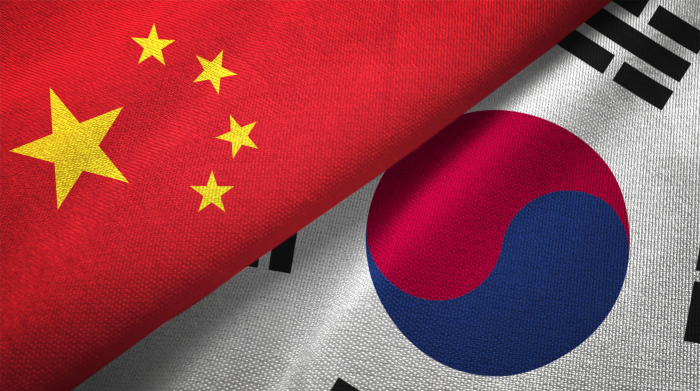Batteries
China, beneficiary of Korea’s surging EV cell material exports
Korea's cathode exports in the first half log $5.8 billion, 88% of which flew to China for imports of key materials
By Sep 05, 2023 (Gmt+09:00)
3
Min read
Most Read
LG Chem to sell water filter business to Glenwood PE for $692 million


Kyobo Life poised to buy Japan’s SBI Group-owned savings bank


KT&G eyes overseas M&A after rejecting activist fund's offer


StockX in merger talks with Naver’s online reseller Kream


Mirae Asset to be named Korea Post’s core real estate fund operator



South Korea’s exports of cathodes for secondary batteries are surging with the booming electric vehicle industry, but the country’s trade deficit with China is increasing due to growing imports of cathode materials, a report said on Tuesday.
Cathode exports in the first half of this year reached $7.5 billion, up 66% from a year earlier, said the Korea International Trade Association (KITA) in a report on the US Inflation Reduction Act (IRA) and its impact on Korea’s battery supply chain.
Korea’s cathode exports sharply increased with an average annual growth rate of 77.7% from 2019 to 2022. The fast growth was driven by many domestic battery makers, including LG Energy Solution Ltd., which established EV battery manufacturing plants in Europe and the US in recent years.
But the country’s trade deficit with China runs deep due to rising imports of cathode materials, such as lithium and precursors.
Korea posted $5.1 billion and $2.2 billion trade deficits in lithium and precursors, respectively, in the first six months of this year. Some 59% and 97% of the lithium and precursor deficits, respectively, came from trade with China.
Korea’s cathode exports logged a $5.8 billion surplus in the first half, but 88% of them flew to China, the biggest provider of cathode materials.
South Korea's trade balance with China in cathodes, lithium and precursors
Unit: billion dollars
cathode lithium precursors
Source: Korea International Trade Association
Surging imports of China’s cathode materials have driven Korea’s worsening trade balance since last year.
The trade deficit with China in lithium hydroxide, a cathode material, soared by 4.8 times on-year to $3.2 billion in 2022. The shortfall in the material amounted to $3 billion in the first half, and it is expected to reach $6 billion by the end of this year.
It is important for Korea to secure its own production capacity of cathode materials, in a bid to respond to the US Inflation Reduction Act (IRA) and save manufacturing costs, the report said.
If Korea continues to rely on imports of precursors for cathode manufacturing, it will be difficult to receive tax credits under the IRA, the report said. Imports of the material from Chinese companies also increase the risk because some of them may be designated as foreign entities of concern (FEOC), the report added.
From 2025, EV batteries eligible for tax credits under IRA should not use critical minerals from FEOCs. The Biden administration has noted China, Russia and Iran as FEOCs, but did not specify which companies of those countries would be regarded as entities of concern.
More Chinese battery materials suppliers and Korean battery makers are setting up joint ventures to get around the IRA. But the report warned that products from such JVs may not be eligible for the tax benefit.
“If the US disqualifies batteries made by Korea-China JVs for the tax credits, the companies may have to withdraw from the business or find other partners. The additional IRA guidelines, yet to be finalized, are highly likely to impact Korea-China battery manufacturing projects,” the report said.
“To compete with Chinese firms, Korean companies need to closely monitor US policies and implement preemptive strategies for investments. Korea should localize the production of precursors and diversify sources of critical minerals like lithium to reduce reliance on China,” said Ko Sung-eun, KITA’s deputy general manager.
“For the battery components of which major production bases are in the US, Korea should make fast decisions on investment in the US,” Ko added.
Write to Hyung-Kyu Kim at khk@hankyung.com
Jihyun Kim edited this article.
More to Read
-
 BatteriesS.Korean battery trio face union risk in US after Ultium Cells’ wage deal
BatteriesS.Korean battery trio face union risk in US after Ultium Cells’ wage dealAug 25, 2023 (Gmt+09:00)
3 Min read -

-
 Business & PoliticsKorea’s trade deficit with China runs deep; chip support required
Business & PoliticsKorea’s trade deficit with China runs deep; chip support requiredJun 29, 2023 (Gmt+09:00)
3 Min read -

Comment 0
LOG IN


